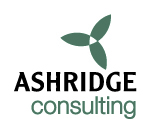Welcome to the December 2012 issue of the newsletterAs we come to the end of 2012, the creation of the Global Coaching & Mentoring Alliance (GCMA) is emerging as Coaching at Work readers´ top choice for achievement of the year, according to our annual survey. We´re still gathering responses to the survey, which includes questions on your predictions for next year. Please take part here. Coaches have broadly welcomed the move to form the alliance by three of leading professional bodies, although there are some concerns in some quarters. We explore this latest development in a news analysis in the Jan/Feb issue of the magazine. Meanwhile, the Coaching at Work-led Accreditation Forum plans to meet over the next six weeks or so for an update on where the professional bodies have got to in terms of comparing their accreditation schemes. Forum members include representatives from the various bodies, and coaching champions from organisations including KPMG, Asda, Kent County Council, Ernst & Young and GlaxoSmithKline. One of the agenda items for the next meeting will be an exploration of the likely impact of the Alliance on our quest for greater clarity in accreditation. In the meantime, if you haven´t yet seen them, there are six basic comparison tables comparing what six of the bodies have to offer, as well as other articles on the Coaching at Work website: accreditation hub If we get too carried away this festive season when it comes to indulging, help is at hand in the series of health coaching articles we´re featuring in the magazine from Stephen Palmer. He explains how coaching can help us and our clients avoid Health Inhibiting Thinking (HET) such as all-or-nothing thinking (for example, “I´ve eaten two mince pies, I´ve blown my diet, I might as well eat the lot!” or “I´ve worked hard all year, I deserve to eat and drink whatever I want”) and foster Health Enhancing Thinking (such as, “Hmmm, I seem to have polished off most of the chocolates, but it doesn´t mean I´m a failure. I can try again tomorrow”). In Highlights, we feature two of his articles from recent issues (subscribers only) and there´s another coming in the Jan/Feb issue of the magazine. For many of us, Christmas is a time of year when generosity and appreciation are very much on our minds. This year, Coaching at Work has chosen Marie Curie Cancer Care as its charity and we know many of you are donating your time and expertise to various charities, including Kids Company. Some issues ago, Carol Wilson shared how she spread some cheer at Christmas in homeless charity Crisis ( see Highlights ) – http://www.coaching-at-work.com/festive-cheer/ We wish you lots of festive cheer and happy holidays! Coaching at Work is launching online and website advertising from next year. Please contact Kate Thomas to hear about our new advertising options, including advertising in the online magazine only, or specific advert types on our popular website – kate@coaching-at-work.com Coaching at Work´s next conference is on 2 July 2013 in London. Subscribers are eligible for a discount to this and all our events (the last two conferences sold out weeks before). In addition, subscribers receive either the digital magazine, or the printed and the digital version of the magazine. We publish six magazine issues a year; up to 16 newsletters (including mentoring digests) and subscription also includes registration on our global Coach List; additional online content; access to every issue since 2005, and a global LinkedIn group (at last count we had more than 13,000 members). Recent popular threads include one on shame. See a sample issue here Liz Hall, Editor, Coaching at Work, Winner of the Association for Coaching Award for Impacting (Leadership/External Focus) Service to the Wider Community for 2010–11
Let’s get connectedFollow us on Twitter athttp://twitter.com/CoachatWorkmag http://twitter.com/lizhallcoaching Join our global Coaching at Work Linkedin group athttp://www.linkedin.com/groups?mostPopular=&gid=2274910 Coach listHave you joined our coach list yet? or if you’re a buyer, have you used the list to help you find the coach/coaches you need? you can now upload a coaching at work coach listing member logo onto your website, emails and so on to show you’ve been approved. Go to: http://www.coaching-at-work.com/coach-register Sample our contentYou have to be a subscriber to access most of the articles on Coaching at Work website. However, you can now view a whole issue here: http://www.coaching-at-work.com/2010/11/30/sample-magazine/ New online formatSubscribers to the magazine can now read it, and earlier content in a Calameo format, allowing you to “flick through” the magazine online. Do be patient when you’re downloading the magazine- it can take up to 20 seconds or so. See back issues in this new format: http://www.coaching-at-work.com/2012/01/20/back-issues-2/ There is also some freely available content on the website, including the following:
|
|
 |
More Highlights of the magazine
Festive cheer Carol Wilson, founder of Performance Coach Training, volunteered at homeless charity Crisis one Christmas (“Festive cheer”, Vol 4, Issue 6, p53). Read article here Viewpoint: virtual teams How can virtual teams forge relationships without ever meeting? Asks Dr Suzanne Edinger, lecturer in Organisational Behaviour at Nottingham University Business School. Perhaps coaching can bridge the gap. Read here. High anxiety Showing anxious clients how to reframe their negative self beliefs, by Dr Trish Riddell. Read here.
|
ASHRIDGE ConsultingBecome a fully accredited coach The Ashridge Masters in Executive Coaching is part-time over two years. Develop reflective inquiry into your own professional practice. Join now! Programmes start December 2012 and February 2013 Full details are online www . ashridge . org . uk/amec or contact jensigne.molbeckblyth@ashridge.org.uk |
 |
Three minutes to midnight column: Can you lead if you don’t know what you’re leading for?Neil Scotton and Alister Scott’s second in a column on our role in tackling the complicated economic, environmental and social challenges we face. It will be a place to question, offer, share, explore, challenge, dissent, celebrate, reflect, learn and enjoy. Read here. |
 |
Health coaching toolkit parts 3 and 4Stephen Palmer explains how to develop more healthy thinking habits. Part 3 and part 4. |
 |
The Coaching Chronicles: James VI and IRoach the Coach guides us through another period in our history in the Coaching Chronicles. Read here. |
Stop PressPutting coaching psychology into practiceThe British Psychological Society´s Special Group in Coaching Psychology (SGCP) held its annual conference in Birmingham on 6-7 December. This year the conference theme was: Putting coaching psychology into practice: an evidence based approach. Invited speakers included Dr Vicki Vandaveer, president elect of the American Psychological Association, Division 13 (Society for Consulting Psychology) who gave an entertaining and insightful paper on the development of coaching psychology in the US (Dr. Vicki Vandaveer presentation). Keynote speakers Prof Rob Briner and Dr Tatiana Backirova both gave fascinating and critical papers focusing on the nature of research and what constitutes evidence-based coaching (Prof. Rob Briner presentation, Dr. Tatiana Backirova presentation). Prof Erik de Haan’s paper looked at the active ingredients in coaching effectiveness, an area in which he is currently undertaking a large research study (Prof. Erik de Haan presentation). The SGCP has announced that it will be holding the 4th European Coaching Psychology Conference next December in Edinburgh. National mentoring monthNext month (January 2013) will mark the 12th anniversary of National Mentoring Month, an annual media campaign in the US to recruit volunteer mentors for young people. The campaign is spearheaded by the Harvard Mentoring Project of the Harvard School of Public Health, MENTOR, and the Corporation for National and Community Service. For more info: http://www.nationalmentoringmonth.org News OnlineMediocre managers as bad as ‘David Brent’ style bossesMediocre managers are just as damaging to employee engagement and wellbeing as more ‘David Brent’-style bosses, according to research from the UK´s Chartered Institute of Personnel and Development (CIPD) which offers yet more evidence of the benefits of a coaching-style approach to management. The report highlights how managers who consulted workers, discussed their career development, remained calm under pressure, and invested time in getting to know staff as individuals were likely to benefit from higher levels of employee engagement and lower levels of stress and absence. Read article here.
How to increase the chances of an aha momentThe more you push for an “aha moment”, the less likely it is you´ll get one but you can create conditions to make it more likely to happen, said Dr Christian van Nieuwerburgh, senior lecturer at the University of East London´s School of Psychology in the United Kingdom. To encourage new thinking in clients, we need to encourage them to “unfocus”, be creative, experience challenge and believe, he said. He was speaking at the seventh annual Instructional Coaching conference at Kansas University. Read article here. Danes and deep theory, videos and Foucault, and other things: reflections from the EMCC conferenceWhat is the optimum size of a coaching cultured company? This was one of the questions that emerged for David Megginson, European Mentoring & Coaching Council (EMCC) ambassador and co-founder, at the EMCC´s annual conference last month. He reflects on six themes: the learning philosophy of coaching scheme designs in organisations; transformational creation of coaching cultures; positive psychology; Danes and deep theory, videos and Foucault; the relationship between refreshment and goals, and “the quiet radical”, Nancy Kline. Read article here. |
|
Diary dates2013 16-18 January: Online EMCC Mentoring eConference Coaching at Work’s annual conference 21-23 November: Athens |
|

The Centre for Coaching, London UKThe Centre for Coaching, International Academy for Professional Development Ltd runs a range of Middlesex University Accredited and Association for Coaching recognised modular coaching courses at Levels 5, 6 & 7. The 5-day Certificate in Coaching (Level 5, 15 Credits) is an introductory Cognitive Behavioural coaching programme. Other courses include the 5-day Certificate in Psychological Coaching (Level 6, 15 Credits), the modular 6-day Certificate in Stress Management and Performance Coaching (Level 5, 30 Credits) and the Certificate in Coaching Psychology (Level 7, 20 Credits). The Diploma courses are at graduate and postgraduate levels. Special 15% discount offer extended to Coaching at Work magazine subscribers who enrol for our courses during November and December, 2012. Call Dawn Cope for further details: Tel: +44 (0) 208 318 4448 or Peter Ruddell: 0845 680 20 65 Click here for: Course dates; Course Brochure. Email: Dawn Cope Courses can also be run in-house for organisations. Tel: +44 (0) 208 318 4448 or 0845 680 20 65 |
If you want to advertise your organisation here, please contact Kate Thomas for more details.

